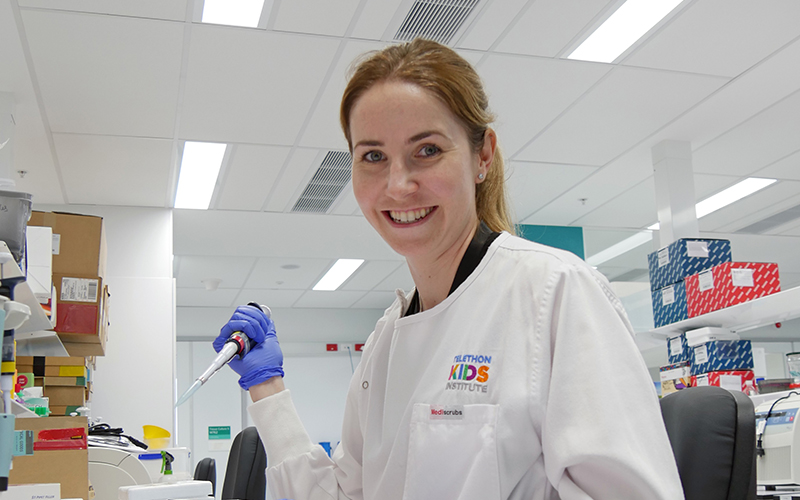Search

News & Events
High praise: two The Kids Researchers inducted into WA Women’s Hall of FameCongratulations to two of The Kids Research Institute Australia’s most respected female researchers – Professor Donna Cross and Professor Britta Regli-von Ungern-Sternberg – on being inducted into the Western Australian Women’s Hall of Fame.

News & Events
Prestigious fellowship to help end the cycle of painful ear infectionsA The Kids Research Institute Australia ear health researcher has received a prestigious national fellowship to support her search for new therapies to improve the lives of kids who suffer repeat middle ear infections.

News & Events
Researcher joins national push to unlock the secrets behind MSA The Kids Research Institute Australia researcher will work to better understand the immune system mechanisms that cause multiple sclerosis, thanks to a new grant from MS Australia.

News & Events
Pioneering mental health researcher named a 2021 Human Rights Medal finalistCongratulations to trailblazing mental health researcher Professor Helen Milroy, who has been announced as a finalist for the 2021 Human Rights Medal.

News & Events
Ideas Grants to support innovative researchTwo research teams, led by The Kids Research Institute Australia, have been awarded more than $2 million to fund innovative projects.

News & Events
The Kids Research Institute Australia researcher a nominee for WA’s Young Australian of the YearDr Hayley Passmore is among four nominees for Western Australia’s 2022 Young Australian of the Year.

News & Events
Support for kids’ mental health and new cancer therapies boosted by WA Child Research FundThe Kids Research Institute Australia researchers have been awarded 12 grants in the latest round of funding from the WA Child Health Research Fund (formerly the Telethon-Perth Children’s Hospital Research Fund).

News & Events
The Kids infectious diseases researcher named a WA Young Tall PoppyA The Kids researcher focused on ensuring kids are protected from infectious diseases will be named among WA’s most outstanding young scientists at the upcoming 2021 Young Tall Poppy Science Awards.

News & Events
Julie Bishop Award aims to help young female researchers jump career hurdlesThe Kids Research Institute Australia Chair Julie Bishop has pledged $50,000 to fund an award designed to help young female researchers overcome persistent barriers to career and leadership success.
